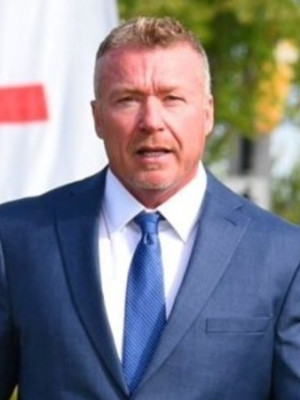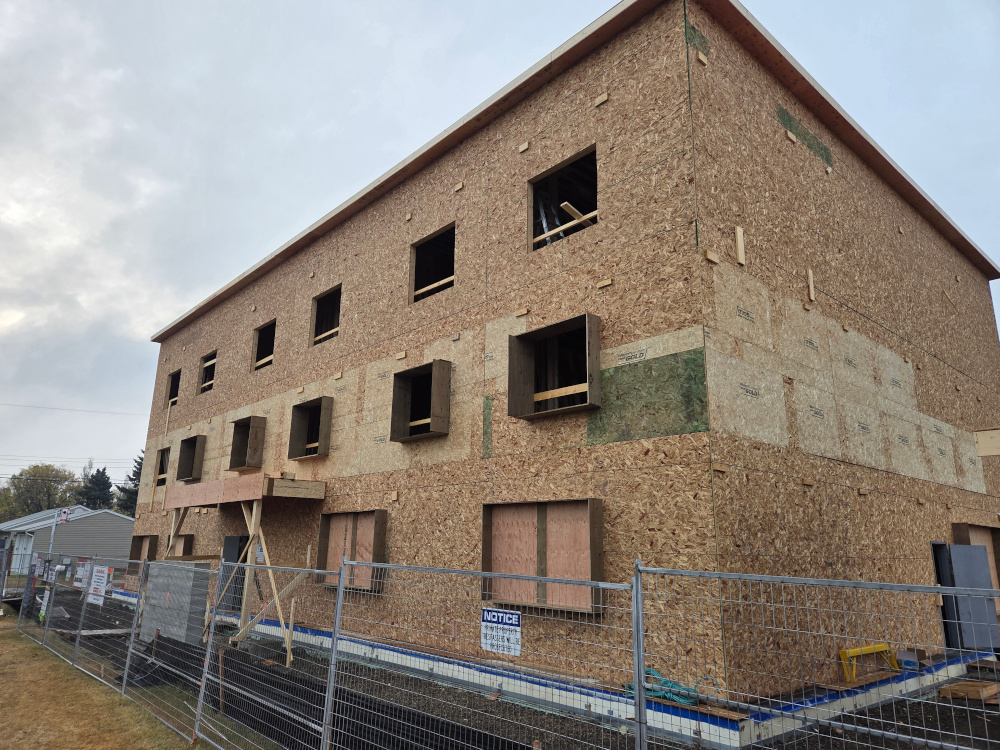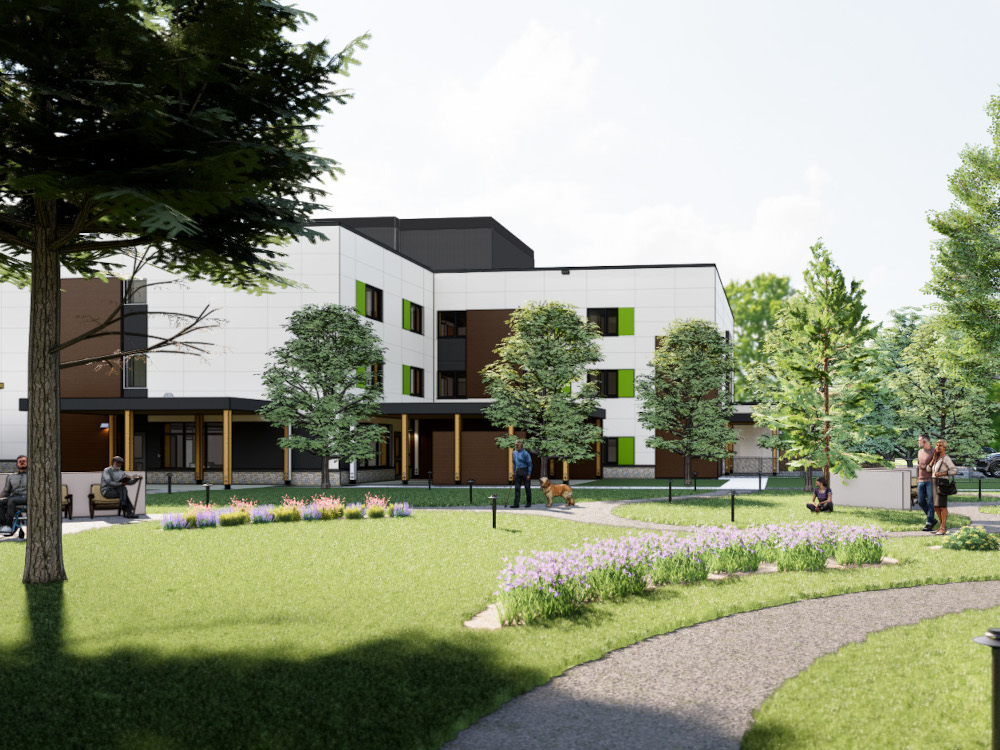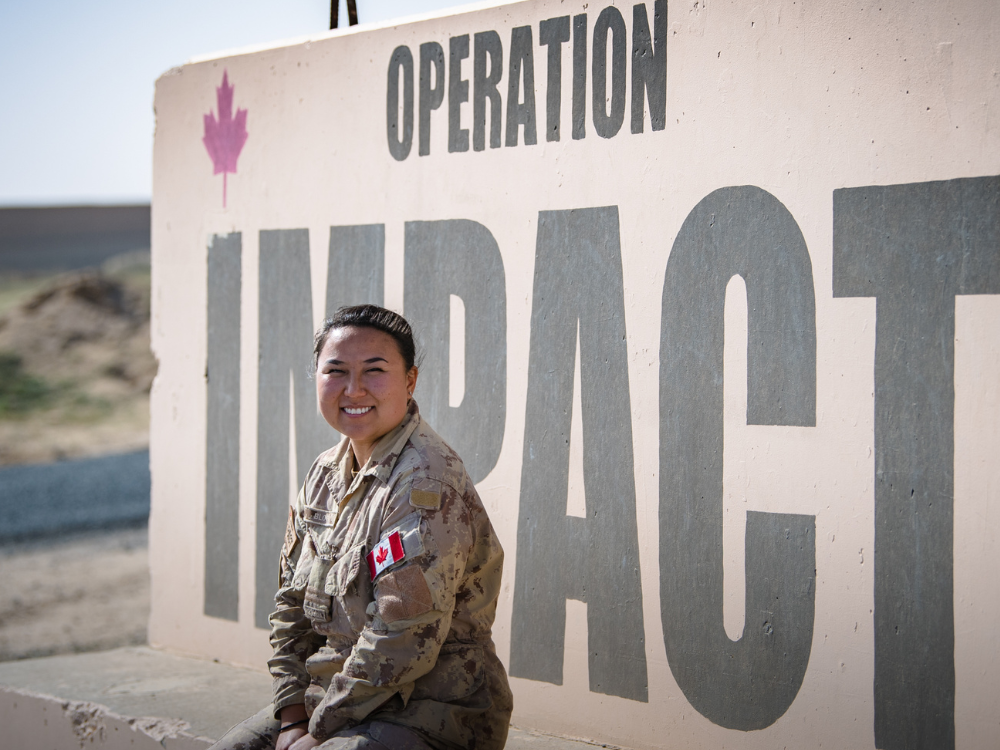When veteran Victor Shea finally sat down in front of the camera, his hands—thick as sledgehammers—trembled. A North Nova Scotia Highlander who fought in the Second World War, he had never spoken about what he experienced in combat. But for nearly two hours, he talked as the camera rolled.
He spoke about hiding in drains behind enemy lines, and about returning to Canada only to discover his brother had been killed in the war. It was an emotional and tense interview, but afterward, as he climbed into the car, Shea told the person driving him home, “I can forget about it now. It’s documented.”
For Allan Cameron, founder of Veterans Voices of Canada, who was behind the camera that day, those words captured the true purpose of his organization’s work: preserving history, giving veterans a chance to make peace with their traumatic past, and even grow closer with their families.

A year later, his granddaughter called to thank Cameron. “We knew our granddad was a big teddy bear under a hard shell,” she told him. “But after the interview you did with him, we got our grandfather back.’”
Cameron, who launched Red Deer, Alta.-based Veterans Voices in 2005 after more than a decade working in broadcast television, turned what was a personal passion for storytelling into a mission to preserve firsthand accounts from Canadian veterans from coast to coast. Since then he has personally interviewed more than 2,000 vets, spanning every major conflict from World War II to modern missions in Afghanistan and the Balkans.
Without these documented filmed stories, many of them would have been lost.
“I’m emotional just talking about it,” he says of Shea’s interview. “But if that’s the one thing I’ve done over the last 20 years, then I’m happy.”
Cameron’s experience reflects the weight carried by many of Canada’s veterans long after they return home. According to Veterans Affairs Canada, about one-third of veterans receiving disability benefits live with a service-related mental health condition, most commonly post-traumatic stress disorder. Statistics Canada reports that 44 per cent of former Canadian Armed Forces members experienced symptoms of anxiety or depression between 2002 and 2018.
Together, those figures point to a need that goes beyond remembrance ceremonies on Nov. 11. Supporting veterans today is about addressing ongoing challenges—mental health, isolation and reintegration—and philanthropic support is needed more than ever.
Veterans’ House Canada: A safe place to land
Across the country, the need for safe, permanent housing for veterans remains pressing. Veterans’ House Canada—a national organization offering permanent, supported, affordable housing for former service members—is working to change that. Its first residence, the Andy Carswell Building in Ottawa, houses 40 veterans and has a wait list. Construction on a second similar residence is under way in Edmonton, and the group has plans to expand to Victoria and Halifax in the coming years.
For many residents, the move represents more than a roof over their heads. It may be the first time they have had privacy after years of living in barracks, on ships, or on the street back in Canada.

“Veterans need a safe base of operations,” says Edmonton-based Michael Schneider, a Veterans’ House wellness manager and a veteran himself. “They need a safe, secure space where they can work on themselves, work on getting their Veteran Affairs claims in order and get access to medical and dental service. Live, eat, relax.”
That stability can be transformative. One Ottawa resident, André, once lived in a tent in some of Canada’s harshest weather. Months after moving into his new apartment, it is now filled with family photos. He acknowledges that having permanent, supportive housing has allowed him to become the best version of himself.
Every gift makes a visible difference. Each suite costs about $25,000 to fully outfit, and donors can choose to sponsor a single room, a shared community space, or even dedicate an entire building. Larger donations can be directed to specific regions, helping Veterans’ House Canada build where the need is greatest.
The organization’s work is guided by a simple principle: No veterans should have to live on the street after serving their country. Offering them a safe place to call home is a form of returning the favour.
Last Post Fund: honouring veterans to the very end
For more than a century, Last Post Fund has ensured that no Canadian veteran is buried in poverty or anonymity. Founded in 1909 by Montrealer Arthur Hair after he discovered a veteran’s body left unclaimed at a hospital, the organization has since provided more than 160,000 funerals and burials for those who have served.
At the heart of its mission is the National Field of Honour in Pointe-Claire, Que., Canada’s largest veterans’ cemetery and a National Historic Site. Spanning 17 acres, it is the final resting place of more than 17,000 veterans and 23,000 people (including close family) in total. Among them are some of Canada’s most decorated soldiers, including Lieutenant-General Sir Benjamin d’Urban; Private Léo Major, well known in the Netherlands for single-handedly liberating the city of Zwolle; and Lieutenant-Colonel Coulson Norman Mitchell, recipient of the Victoria Cross.
We never want a veteran’s final resting place to depend on their financial means.
Martine Moreau, executive director, Last Post Fund
Despite its historical significance, the Field of Honour relies almost entirely on donations to remain open.
“We don’t operate like a private cemetery,” says Martine Moreau, a former diplomat who became executive director for the Last Post Fund six months ago. “We’re a non-profit, so every dollar goes directly into maintaining the grounds and supporting families. We never want a veteran’s final resting place to depend on their financial means.”
The Fund also administers Veterans Affairs Canada’s Funeral and Burial Program, which covers up to $7,376 in funeral expenses for veterans in financial need, and the Unmarked Grave Program, which provides military headstones for those buried in anonymity. Since 1996, more than 9,000 markers have been installed across the country. An Indigenous Veterans Initiative adds culturally significant symbols and traditional names to the gravestones of First Nations, Métis and Inuit veterans, too.
The impact of this work is deeply personal. Each month, the Fund surveys families it has helped. The responses are often filled with gratitude: “Your employees are top-notch, first rate, kind, compassionate, effective and efficient. They guided this ‘new military widow’ through the process with a gentleness that’s often missing.”
Messages like this reflect the essence of their mission, Moreau says: to honour service with dignity and humanity.
But donations and philanthropic gifts can go a long way toward filling the gaps. For instance, if a bereaved family misses the deadline to submit a claim for the funeral and burial program, Last Post Fund can step in and ensure they receive money from donations. In other cases, financial gifts go toward installing grave markers and holding a commemorative service for soldiers in unmarked graves. It is a concrete way to see the money in action.
“For us, it’s not just about the burial,” she says. “It’s about making sure veterans and their families feel respected. It’s not just financial, but also the human touch.”
Veterans Voices of Canada: Preserving memories
For Allan Cameron of Veterans Voices of Canada, the work is as emotional as it is essential. After two decades of filming he still finds himself drawn back to footage he has shot.
“Sometimes I sit down to edit and end up just watching,” he says. “The stories are that riveting.”
He calls those stories “a goldmine of history.” Many of the men and women he has interviewed are now gone, their voices preserved only on the organization’s tapes and digital archives. Families return to the collection again and again to hear a father’s voice or see the face of a mother in uniform, long after they’re gone.
Donations allow Cameron to keep that mission alive. With greater support, he hopes to expand Veterans Voices of Canada’s three main initiatives. One is the organization’s Military Museum in Red Deer, which operates rent-free in a donated mall space. Another is Flags of Remembrance, a national annual tribute to Canadian service members. The third is the Veterans Voices archival program, which digitizes interviews for preservation and potentially future donation to the Canadian War Museum.
“If you have or had a veteran in your family,” he says, “we’re making sure that they are remembered.”
How to support Canada’s veterans
Veterans Voices of Canada — Donations help preserve filmed interviews, expand the Military Museum and support national remembrance programs such as Flags of Remembrance. vetvoicecan.org For information: info@vetvoicecan.org
403-358-6313
Last Post Fund — Supports funerals, military gravestones for unmarked graves and maintenance of the National Field of Honour in Pointe-Claire, Que. lastpostfund.ca For information: mmoreau@lastpost.ca
1-800-465-7113 ext. 221
Veterans’ House Canada — Funds go directly toward building and maintaining permanent, affordable housing for veterans and creating new residences across the country. veteranshousecanada.ca For information: fund.development@veteranshousecanada.ca
613-502-0136
Kira Vermond is a veteran personal finance journalist with more than 20 years of experience writing for Canadian investors and advisors. A longtime contributor to The Globe and Mail, has also written for MoneySense, CBC and Forum Magazine, and is the former money columnist for Chatelaine magazine. Vermond is the author of multiple books including The Secret Life of Money: A Kid’s Guide to Cash. She lives in Guelph, Ont.
The Canadian Family Offices newsletter comes out on Sundays and Wednesdays. If you are interested in stories about Canadian enterprising families, family offices and the professionals who work with them, but like your content aggregated, you can sign up for our free newsletter here.
Please visit here to see information about our standards of journalistic excellence.




